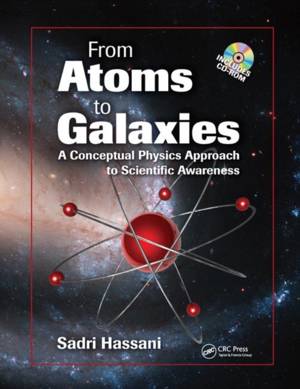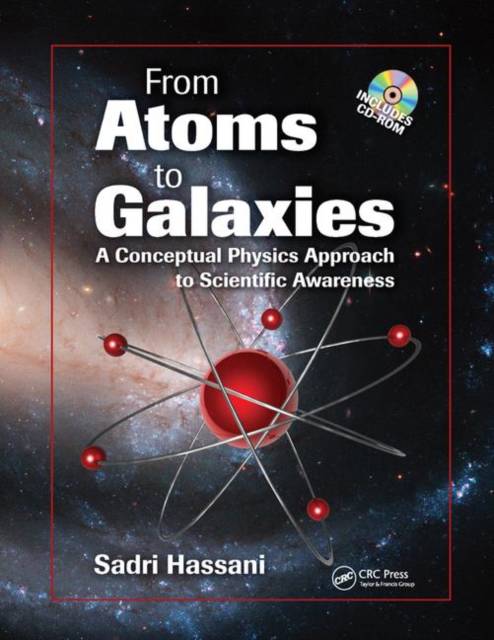
- Retrait gratuit dans votre magasin Club
- 7.000.000 titres dans notre catalogue
- Payer en toute sécurité
- Toujours un magasin près de chez vous
- Retrait gratuit dans votre magasin Club
- 7.000.0000 titres dans notre catalogue
- Payer en toute sécurité
- Toujours un magasin près de chez vous
From Atoms to Galaxies
A Conceptual Physics Approach to Scientific Awareness
Sadri HassaniDescription
From Atoms to Galaxies: A Conceptual Physics Approach to Scientific Awareness teaches heightened scientific acuity as it educates students about the physical world and gives them answers to questions large and small. Written by Sadri Hassani, the author of several mathematical physics textbooks, this work covers the essentials of modern physics, in a way that is as thorough as it is compelling and accessible.
Some of you might want to know .... . . How did Galileo come to think about the first law of motion?
. . . Did Newton actually discover gravity by way of an apple and an accident?
Or maybe you have mulled over.... . . Is it possible for Santa Claus to deliver all his toys?
. . . Is it possible to prove that Elvis does not visit Graceland every midnight?
Or perhaps you've even wondered ...
. . . If ancient Taoism really parallels modern physics?
. . . If psychoanalysis can actually be called a science?
. . . How it is that some philosophies of science may imply that a 650-year-old woman can give birth to a child?
No Advanced Mathematics RequiredA primary textbook for undergraduate students not majoring in physics, From Atoms to Galaxies examines physical laws and their consequences from a conceptual perspective that requires no advanced mathematics. It explains quantum physics, relativity, nuclear and particle physics, gauge theory, quantum field theory, quarks and leptons, and cosmology. Encouraging students to subscribe to proven causation rather than dramatic speculation, the book:
- Defines the often obscured difference between science and technology, discussing how this confusion taints both common culture and academic rigor
- Explores the various philosophies of science, demonstrating how errors in our understanding of scientific principles can adversely impact scientific awareness
- Exposes how pseudoscience and New Age mysticism advance unproven conjectures as dangerous alternatives to proven science
Based on courses taught by the author for over 15 years, this textbook has been developed to raise the scientific awareness of the untrained reader who lacks a technical or mathematical background. To accomplish this, the book lays the foundation of the laws that govern our universe in a nontechnical way, emphasizing topics that excite the mind, namely those taken from modern physics, and exposing the abuses made of them by the New Age gurus and other mystagogues. It outlines the methods developed by physicists for the scientific investigation of nature, and contrasts them with those developed by the outsiders who claim to be the owners of scientific methodology. Each chapter includes essays, which use the material developed in that chapter to debunk misconceptions, clarify the nature of science, and explore the history of physics as it relates to the development of ideas. Noting the damage incurred by confusing science and technology, the book strives to help the reader to emphatically demarcate the two, while clearly demonstrating that science is the only element capable of advancing technology.
Spécifications
Parties prenantes
- Auteur(s) :
- Editeur:
Contenu
- Nombre de pages :
- 756
- Langue:
- Anglais
Caractéristiques
- EAN:
- 9780367384111
- Date de parution :
- 10-07-20
- Format:
- Livre broché
- Format numérique:
- Trade paperback (VS)
- Dimensions :
- 210 mm x 279 mm
- Poids :
- 1669 g

Les avis
Nous publions uniquement les avis qui respectent les conditions requises. Consultez nos conditions pour les avis.






